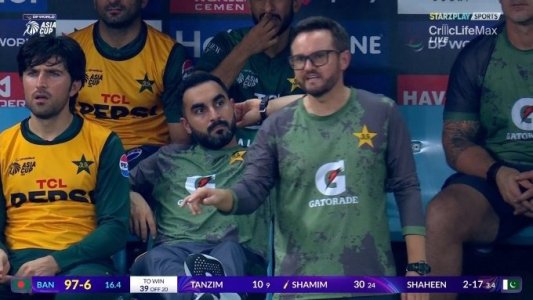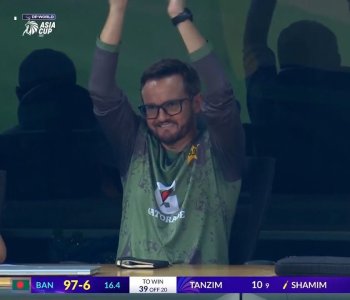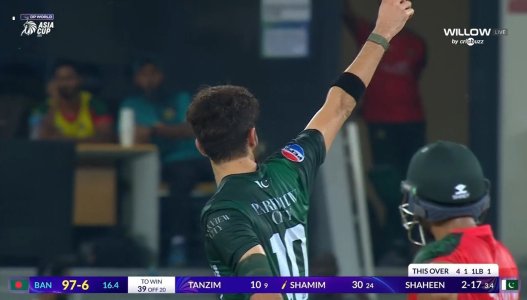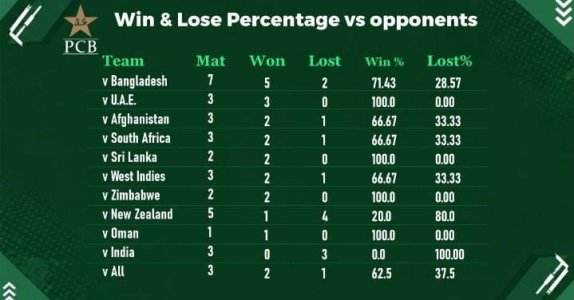Mike Hesson shared following thoughts in a press conference today:
Mike Hesson on the upcoming match against India:
"I've certainly watched many games from afar, whether it's been with other teams or commentating, and I've certainly been on the other side of the fence. Being right in the middle of such a highly charged event is going to be exciting. From my perspective, just like any time you enter a final or a world event, it's about focusing on the task at hand. It will be no different this weekend as we keep everyone focused on the job. We know that India is obviously hugely confident, and rightfully so given how well they've played. However, we're very much focused on improving as a team day by day and not getting too far ahead of ourselves. We are well aware of the enormity and the challenge of the task ahead, and we are certainly looking forward to it."
Mike Hesson on the pitch and team selection:
"No, we haven't finalized it. Part of that process is coming and looking at the wicket, which I've done today. We've obviously come and assessed the pitch and its differences. We've played here a bit before, and it's very different from the pitch in Sharjah in terms of the abrasiveness of the grass. We know the conditions pretty well; we obviously got a little glimpse of it last night, and we're playing on the same surface tomorrow. We're very much looking forward to that, and I think within our squad, we have the balance to deal with it. We have plenty of multi-skilled players who give us some flexibility."
Mike Hesson on spin attack:
"I don't think you can expect this pitch to spin as much as it did in Sharjah. Even yesterday, the ball didn't spin a huge amount. Whenever you have wrist spinners, the surface doesn't matter as much. I guess the beauty of our side is that we have five spinners. We have Mohammad Nawaz, who's the best spin bowler in the world at the moment and has been ranked that way for the last six months since he's been back on the team. We've also had Abrar Ahmed and Sufiyan Muqeem. Saim Ayub now is in the top ten all-rounders in the world, which obviously comes from his improved performance with the ball. Salman Ali Agha has hardly bowled, and he's obviously the test spinner for Pakistan. We've got a lot of spin-bowling options if we think the conditions suit. If not, we have five seamers who allow us to either go for air speed, change of pace, or reverse swing, depending on what we think the surface will provide."
Mike Hesson on batting performance and concerns about reading spinners:
"First, I don't know where that idea came from or who would make that assessment. We've played against Rashid Khan, probably the best wrist-spin attack in the world, on a surface that has spun square, and we managed to score 70 more than our opposition. So I'm not quite sure where that's come from. We are a very much developing batting lineup. There are a number of players who can win you a game on their day, but they don't have as many good days as you would like at the moment, which I think is fair. For us, we're more interested in the "sum of the parts" as a batting group. In every game in Sharjah, except for one, we were probably 20 runs above par. Even though a number of players didn't do well on particular occasions, I'm more interested in our end result and how we get there. Even in the final, 120 runs would have been plenty on that pitch, but we got 140. Any cricket people watching that game would have been well aware of the ball stopping and spinning. The fact that we scrapped to 140 means you're never going to play with fluency on those surfaces. We also got 200, we got 180, and we had 150 chasing, which was probably our poorest performance. Other than that, as a batting unit, we've gotten the job done. Would we like every one of them to be in form at the same time? Of course we would. The chance of playing out here is for a few of those guys to find some form and play the innings we know they can play, and it certainly looks like it's going to be a pretty good pitch."
Mike Hesson on learning Urdu:
"I've been fortunate enough to understand a lot of Urdu, though not Pashto. I'm not going to reel off a few statements right now, but I do understand a lot of Urdu. That's probably fortunate for me, having spent a bit of time in this part of the world. As for speaking Urdu, it's limited, but you certainly can't have players talking behind your back without knowing what they're saying. So I'm definitely aware of all of those things."
Mike Hesson on being honest with players:
"I think being honest in your assessment of players is pretty important. Also, coming from a place where you have no agenda is very important. If you can come in as someone who can look at things objectively, I think that's important. I certainly haven't talked about anyone's frailties. What I've alluded to is that the way the modern game is played and the strike rate required in the powerplay are quite different from what's probably been needed in the past, especially in good conditions. I think all players ask coaches and selectors to be honest with them and say, 'These are the things we'd love you to work on.' If you do that, there's always a way back into any team. Just because you like a player or have a relationship with a player doesn't mean you can't be honest. That's all you can ask for. If players want to improve and contribute to the team, then you have a pretty clear role definition, and it's up to the players to work on those things. That's what I ask of anybody and any team we work with, including current players and players who are trying to fight their way back into the team."
Mike Hesson on team goals:
"As I said, I'm more interested in the 'sum of the parts.' What does the team actually achieve on a particular day, and is it good enough? There are times when 150 is good enough, and there are times when 190 might not be. As a batting unit, you have to decide what's required to win the game and whether you can get above that. That's the only thing that matters. It's not about average strike rates or anything else. It's about what the team needs to do to help win that game of cricket. As a bowling unit, we do the same thing: How can we bowl well enough to keep the opposition below par? And if we, as a batting unit, are able to get above par, then there's a difference between the two. That's pretty much what we work on. We don't necessarily look at fours and sixes. The reality is, I would much rather be 165 for nine than 150 for two at the end of 20 overs because I know what wins the game. The only thing that matters in the end is what your score is—what your team's score is. Nothing else matters."









